|
There are two parts of our nervous system:
1. The sympathetic nervous system (our fight-or-flight response, involved in stress related activities) 2. The parasympathetic nervous system (our rest and digest functioning, keeps the body at rest and calm) We live in a world where there is a constant pressure to do more and be busy which can cause us to get stuck in the sympathetic (fight-or flight) dominant mode. Being stuck in fight-or-flight mode can manifest in symptoms such as: insomnia, overwhelm, anxiety, irritability, tired during the day but wired at night, and eventually depression (shutting down). When we're in a more parasympathetic nervous system state, we feel more calm, we sleep better, feel less stressed and experience greater wellbeing. So how we do tap back in into the parasympathetic nervous system? Here are some of my top 10 suggestions: 1. Meditation. Spending even a few minutes in meditation can restore calm and inner peace. Studies involving MRI scans show the amygdala (our part of the brain that deals with fear and anxiety) shrinks in response to a meditation practice. I personally find this the most effective method to bring me back into the parasympathetic. I love the Headspace and Calm Apps. Calm also has some great meditation videos on YouTube. Try to aim for 10 minutes in the morning, it can make such a difference in your day. 2. Prioritize Sleep. Our most restorative hours for sleep are between 10pm - 12am, when our brains make the most melatonin so optimal bedtime is around 10/10:30pm. Studies show 8 hours is the sweet spot for amount of sleep, and quality of sleep is incredibly important. This can be a hard one because stress can impact sleep quality, especially causing waking between 2 - 4 am; a common cortisol-related symptom. I will often suggest taking magnesium bisglycinate or calming herbs before bed if this is the case. 3. Calm Exercise. Avoid high intensity exercise and stick to gentler movements like yoga, pilates and walking. Intense exercise is a physical stress and the body doesn't differentiate between good stress and bad stress. 4. Decrease caffeine and alcohol intake, Increase water intake. Both alcohol and caffeine increase cortisol levels. Try to limit the coffee to 1/2 cup a day and keep alcohol to 2-3 drinks/week maximum. Being dehydrated has also shown to increase this stress hormone so aim for 2L of filtered water a day. 5. Say No to the things that don't serve you. Remove as much as you can from the to-do list and from your plans to simply your life. Really ask yourself what is essential and what will help you feel less stressed. Carving out more time for you, rest and self-care helps achieve this. 6. Hands-on Therapy - acupuncture, massage, osteopathic treatments are some examples of hands-on therapies that have been studied to calm our nervous systems. 7. Naturopathic Support - herbs, supplements and minerals are incredible in their ability to calm. Passionflower, ashwagandha, skullcap, theanine, glycine, and magnesium bisglycinate are some examples of naturopathic support that can reduce stress levels. Chat with your ND or book a consult here to see what would best suit you. 8. Warmth - taking a warm bath at the end of the day (or any time of day) has been shown to reduce cortisol levels and improve sleep quality. Tip - add lavender-infused epsom salts to the bath to make it extra relaxing. 9. Essential Oils - these can do wonders to calm our nervous systems down. Lavender is my best friend - it’s like a hug in a scent <3 10. Time in Nature - nature therapy, also known as eco therapy, has been shown to improve one’s stress levels and overall physical and mental health in numerous studies. ** Remember rest is productive! By tapping into our parasympathetic nervous system more often we truly become more productive and in line with what we truly want and value in our lives.
0 Comments
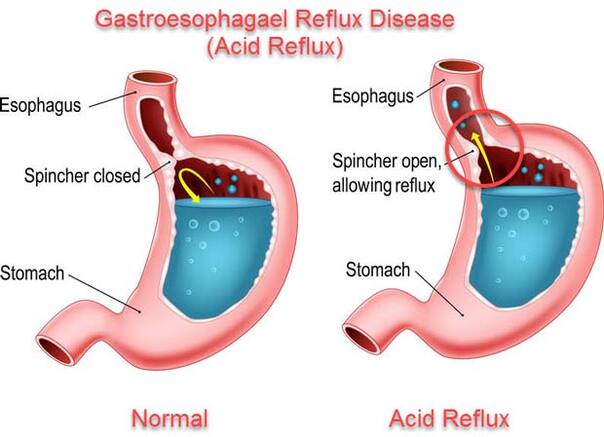 Heartburn, sometimes referred to as acid reflux, or GERD (gastrointestinal esophageal reflux disease), is one of the most common digestive disorder affecting North Americans. After Lipitor (a cholesterol reducing medication), acid suppressing medications are the most common medication prescribed for this condition. Problems with taking acid suppressing drugs (e.g. nexium, zantac, prilosec):
9 Naturopathic, Evidence-Based Approaches to Supporting Our Immune System, especially during COVID194/10/2020 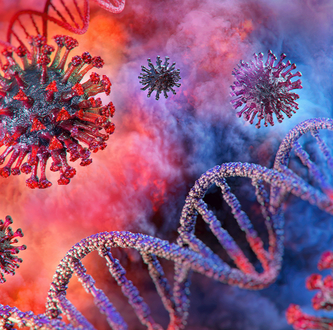 Keeping our immune systems strong is the most important thing we can do to protect ourselves against COVID-19. There is always a risk of exposure, no matter how hard we try to avoid it, but building up our body’s natural resilience is key. Enhance your immune system with some of these 9 natural, well-researched approaches! Link to studies included. 1. Serious Hand Cleaning – it’s the most simple tip, but it’s certainly the most critical. Twenty full seconds of scrubbing is what it takes to lift germs off skin and carry them away when you rinse. Also, social distancing (at least 2 meters away) and avoid touching your face.
2. Vitamin C - a potent antioxidant and antiviral. Currently administered intravenously in NYC, China and South Korea to COVID-19 patients to reduce intensity and duration of symptoms. Recommended oral preventative dosing is 1000 mg 3 - 4x/day (spread out through the day as the body only absorbs a certain amount of vitamin C at a time) and should be in a buffered (alkalinized) form. https://isom.ca/vitamin-c-coronavirus/ 3. Vitamin D - increases immunity and has been shown to reduce vulnerability to respiratory tract infections (viral especially). Most Canadians are deficient in vitamin D based on their bloodwork levels. The recommended preventative dosing is 1000IU/day (see your ND or doctor to see your bloodwork levels if a higher dose is required (often is) to ensure your vitamin D is in the optimal range. https://www.mdpi.com/2072-6643/12/4/988 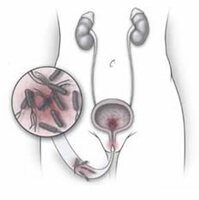 Over 50% of women will suffer from a urinary tract infection (UTI) during their lifetime. One-third to one-half of these women will have a recurrent UTI within one year. Recurrent UTI’s are defined as three or more UTI’s in a 12 month period (1). The most commonly used conventional therapies for these conditions are antibiotics. There is increased awareness and concern about antibiotic resistance with repetitive use of these medicines. This growing concern has created an interest in alternative treatments for UTI’s. The purpose of this article is discuss this conditions, the causes, and alternative treatments for cure and further prevention. This article will also illuminate the link between UTI’s and an imbalanced gut microbiome, otherwise known as dysbiosis. Gastrointestinal conditions associated with dysbiosis such as Irritable Bowel Syndrome (IBS) and Small Intestine Bacterial Overgrowth (SIBO) are common in those with bladder infections.  Interstitial cystitis (IC) is a condition of the bladder that affects millions of women, men, and children worldwide. Also known as bladder pain syndrome (BPS), IC is a chronic inflammatory condition that results in recurring discomfort or pain in the bladder and the surround pelvic region. Other symptoms may include increased pressure in the pelvic region, increased urgency, and/or increased frequency to urinate.[1] Diagnosis of IC The American Urological Association defines IC/BPS as follows: “An unpleasant sensation (pain, pressure, or discomfort) perceived to be related to the urinary bladder, and associated with lower urinary tract symptoms of more than six weeks duration in the absence of infection or other identifiable cause.”[2]  Iron deficiency is the most common nutrient deficiency in the world (1). Many women are iron deficient, especially those who are menstruating, pregnant, post-partum or breastfeeding. Iron deficiency is also commonly seen in those with chronic blood loss and/or gastrointestinal absorption issues. Untreated iron deficiency can lead to iron deficiency anemia, which occurs when the body lacks sufficient amounts of iron to form normal red blood cells. Without enough iron, the body can’t produce enough hemoglobin for red blood cells to deliver oxygen from the lungs to the tissues. These are some of the symptoms that one may experience with iron deficiency or anemia (2):
 A health-related New Year’s resolution can be so powerful, whether it’s a goal to get stronger, give up a bad habit or lose some weight. Here are some tips to help create and sustain your health goal for 2017. 1. Make one resolution only. Making too many resolutions can be overwhelming and often hard to follow through with. 2. Make sure it’s your goal, not someone else’s. Ask yourself: What’s one important thing I could be doing right now that I haven’t been? 3. Use SMART goals: Specific, Measurable, Attainable, Realistic and Time sensitive. Some examples: Run a 5K race on May 7th, Consume 5 servings of vegetables every day until February 1st. 4. Be accountable to someone. Tell a friend or family member about your goal and ask them to check in with you. Also tell your ND about your new goal. Those who care about you want to help you succeed. 5. Make it visual. Write down your goal, use visual reminders to help keep them fresh in your mind (i.e. a bikini, or a photo of a time you were more physically fit or healthy, a marathon route you are planning to run). Keep these visuals around your living or office space as constant motivators. 6. Last but not least, reward yourself along the way. As you are working hard towards your resolution, treat yourself! Some ideas could be: a massage, a new fitness outfit, a new kitchen appliance, etc. Staying motivated requires some incentive. Here's to a healthy and happy 2017 :)  Bloating is not fun. We've all been through it, looking 9 months pregnant can make us feel unpleasant, uncomfortable and unattractive. Bloating can come with other symptoms like constipation, gas, stomach or lower abdominal pain, feeling swollen and more. So what causes bloating? Here are 6 of the most common causes of bloating I see in practice. 1. Eating Habits - eating or drinking too quickly, eating too much food, not properly chewing our food can result in bloating. The reason for this is that our body is not able to secrete the proper amount of enzymes and stomach acid to effectively break down our food. Another reason is that eating too quickly increases the likelihood of swallowing air. Take away: eat mindfully, do not have liquids with your meal, and watch your portions. I really like the 5-10-15 rule: take 5 deep belly breaths before a meal, put down your utensils for 10 seconds after every bite, and make sure your meal takes no less than 15 minutes.  Acne vulgaris is the most common dermatological issue seen by physicians. It is a condition that can cause a lot of distress, resulting in lowered self-esteem in some. Often patients will seek pharmaceutical treatments such as the oral contraceptive pill, spironolactone or Accutane in order to seek some relief for their skin, which can come with nutrient depletions, risks and side effects. Naturopathic medicine aims to target the cause of acne from the inside out and offers safe and effective treatments for long-term resolution of this skin condition. 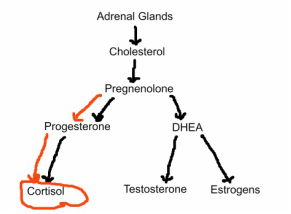 Our hormone system (medically known as our endocrine system) is complex. Our endocrine system consists of 6 different organs (our pituitary gland, pineal gland, thyroid, pancreas, ovaries/testis, and adrenal glands) and each of these glands is responsible for producing certain hormones (i.e. the ovary producing estrogen and progesterone, the adrenal glands producing cortisol). What makes our hormones complex is not just the individual organs and the hormones they produce, but how these systems affect each other and result in certain hormonal conditions. Common signs of Hormonal Imbalance include:
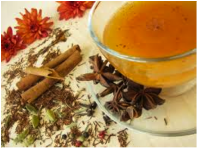 Part 1 - Your Digestion from an Eastern Perspective According to naturopathic medicine, our digestive system is the key to balanced health and vitality. Naturopathic medicine is a combination of Western, modern scientific knowledge with Eastern traditions. Eastern traditions include: Traditional Chinese Medicine (TCM), which was the first formalized system of healthcare in modern civilization, along with Ayurvedic Medicine, the ancient medical system from India. Both of these traditions understand that in order to extract the nourishment we need from food, there needs to be balance and integrity in both the body and mind.  Constipation is a condition that affects 1 in 4 Canadians and is defined as having a bowel movement fewer than four times per week. Chronic constipation can sometimes be managed with diet and lifestyle including extra fluid intake, exercise, increased dietary fibre and more. For some of us though, these changes either make a small difference or the effect doesn’t last and the constipation returns! 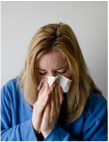 Allergies are the fifth-leading cause of chronic disease in the world and are affecting up to 30% of adults and 40% of children globally. According to the Asthma and Allergy Foundation, the prevalence of this condition has increased each year over the past decade. [1] Allergy sufferers may experience runny or itchy noses,congestion as well as watery and itchy eyes. Naturopathic physicians are well trained at helping both to manage these symptoms naturally and potentially eliminate allergies, avoiding the use of over the counter medications to keep those symptoms at bay. This article will review the top naturopathic strategies for managing and potentially eliminating allergies.  When people ask me what I do, my response is often met with a confused look and the questions “so you’re a nutritionist?” “A herbalist?” “A what type of doctor?” I actually didn't know what a Naturopathic Doctor (ND) was until a couple years before applying for naturopathic medical school when I experienced first hand the benefits of seeing an ND. Read more for ways an ND can help you! 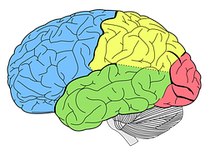 According to the Canadian Mental Health Association, at this very moment, 3 million Canadians are suffering from depression and on any given week, more than 500,000 Canadians will not go to work because of mental illness. In the spirit of Bell’s Let’s Talk day last week (which made an incredible impact on Canada’s mental health care system, way to go Bell users:), I thought I’d share some of what the research has shown on ways to improve brain health. Some inspiration for your Tuesday :)
|
AuthorDr. Lara is a Naturopathic Doctor who is passionate about helping and empowering her patients in their journey towards lifelong health and wellness Categories
All
Archives
September 2021
|


